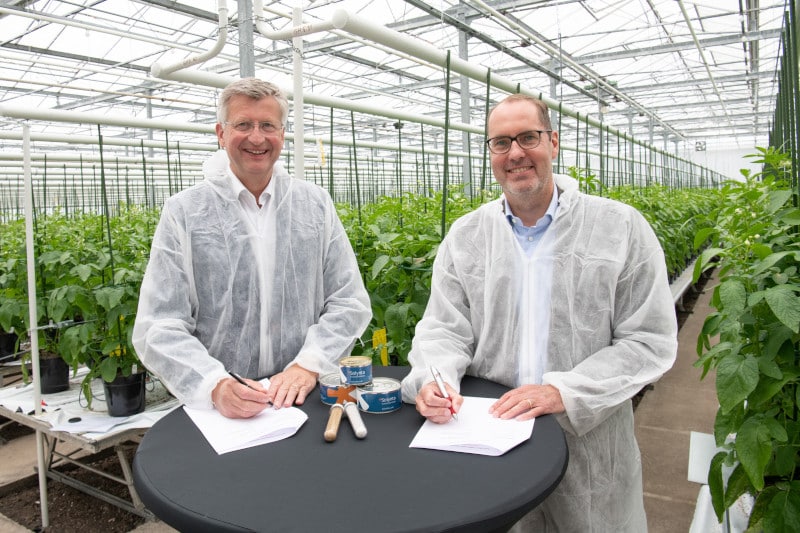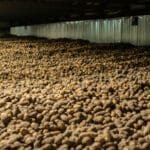Agreement focuses on commercialization and distribution of disease-free, high-quality starting material to smallholder farmers in Kenya and India, the companies said.
Bayer and Solynta have reached an agreement to collaborate on the commercialization and distribution of true potato seeds in Kenyan and Indian markets. This partnership marks the entry of Bayer into the 20 million hectares global potato market, and its first collaboration with Solynta, a Dutch company focused on developing robust hybrid potato varieties for the world’s fourth-largest crop by global production volume, and one of the most cultivated horticultural crops worldwide.
The collaboration will center around Solynta’s expert knowledge of potato breeding with the development of new robust potato varieties that will thrive in key potato growing geographies. This innovation will allow growers to plant potatoes from true seeds rather than the traditional planting of tubers.
Growers will only need 25 grams of clean and disease-free true potato seeds per hectare to start a potato crop, compared to the 2,500 kgs of perishable seed tubers previously required, the companies said. The new hybrid potato varieties will be distributed in the form of true seeds by Bayer to potato growers in the most remote areas of Kenya and India.
The Benefits of True Potato Seeds
The ability to grow potato crops from true potato seeds, instead of from seed tubers, offers significant advantages to the potato industry. Seed tubers are more likely to carry disease or spoil in transit and are more expensive to transport and store. True potato seeds, on the other hand, are clean and disease-free, offering many advantages to the traditional starting materials used in potato growing.
True potato seeds also have a shelf life of many years, are much smaller and economical efficient to transport and store. Additionally, true potato seeds are available year-round. Through hybrid breeding, true potato seeds can also be bred with additional beneficial traits, including disease resistances and climate resilience.
For Bayer, the addition of true potato seeds to its portfolio is in line with its regenerative agriculture strategy, focused on building more resilient and sustainable food systems.
“We are excited to enter the collaboration with Solynta and to further support smallholder farmers,” said Frank Terhorst, Head of Strategy & Sustainability at Bayer’s Crop Science Division “Seed innovation is one of our key focus areas. We expect these true potato seeds to have a positive impact on local communities and on food and nutritional security in Kenya and India.”
Peter Poortinga, CEO of Solynta, pointed out that the true potato seeds are the result of almost two decades of work on hybrid potato breeding technology at Solynta.
“Hybrid breeding is a proven technology in many existing food crops, which allows fast development of new varieties with desirable traits, such as disease resistances. As a company, we are delighted to join forces with Bayer on the introduction and distribution of our true potato seeds to these markets. This collaboration is a major step towards widespread commercial introduction of true potato seeds, and the establishment of new, sustainable potato cropping systems” he said.
According to Solynta’s Chief Commercial Officer Joost van Regteren, this collaboration signals the beginning of an expanded commercial presence in the regions. “We are focused on rapidly and broadly introducing true potato seeds, conducting field and commercial trials to demonstrate their effectiveness. We are thrilled to partner with Bayer for the further commercial roll-out in Kenya and India,” he added.
One of the largest challenges facing smallholders in both regions is the lack of high-quality starting material with suitable genetics to grow potatoes to feed their communities and improve their financial position. In both geographies, the need for quality starting materials to grow potatoes exceeds the availability. In Kenya, potato is the number two staple crop, and its growers are dependent on a limited supply of seed tubers which are often carriers of potato diseases.
India is the second-largest market for potato in the world. With a fast-growing population and various climate zones within the country, there is a high demand for new, robust potato varieties that can withstand potato diseases and are easy to transport. By using Solynta’s true potato seeds, smallholder farmers in both markets will benefit by gaining access to high quality starting material to grow their potatoes and feed their communities.











